Mshwati Memorial School has significantly benefited from the Partners for Possibility programme
Education is key to unlocking the potential of South Africa. It is the doorway through which the youth step into bright futures, bringing with them a shift in poverty, unemployment and economic inequality. As Nelson Mandela said: “Education is the most powerful weapon which you can use to change the world.” And yet South Africa’s education system remains under pressure, ranked 114th out of 137 countries in the World Economic Forum’s Global Competitiveness Report 2017-2018. There is a dire need for change in system, spend and leadership to ensure that the children of South Africa are provided with the education that they deserve.
Enter Partners for Possibility (PfP), a flagship programme of Symphonia for South Africa where business leaders partner with school principals to enhance the quality of education, improve the school environment and mobilise the community. The programme builds a relationship between a business partner and a school principal from an under-resourced school and provides them with leadership development and professional coaching. They work together to custom design a school improvement plan that addresses the school’s specific challengers and engages with the community to inspire active involvement in children’s education and the execution of the plan.
Over the past year, some principals and schools have stood out for their commitment to change and leadership. They are the top achievers, whose hard work deserves recognition.
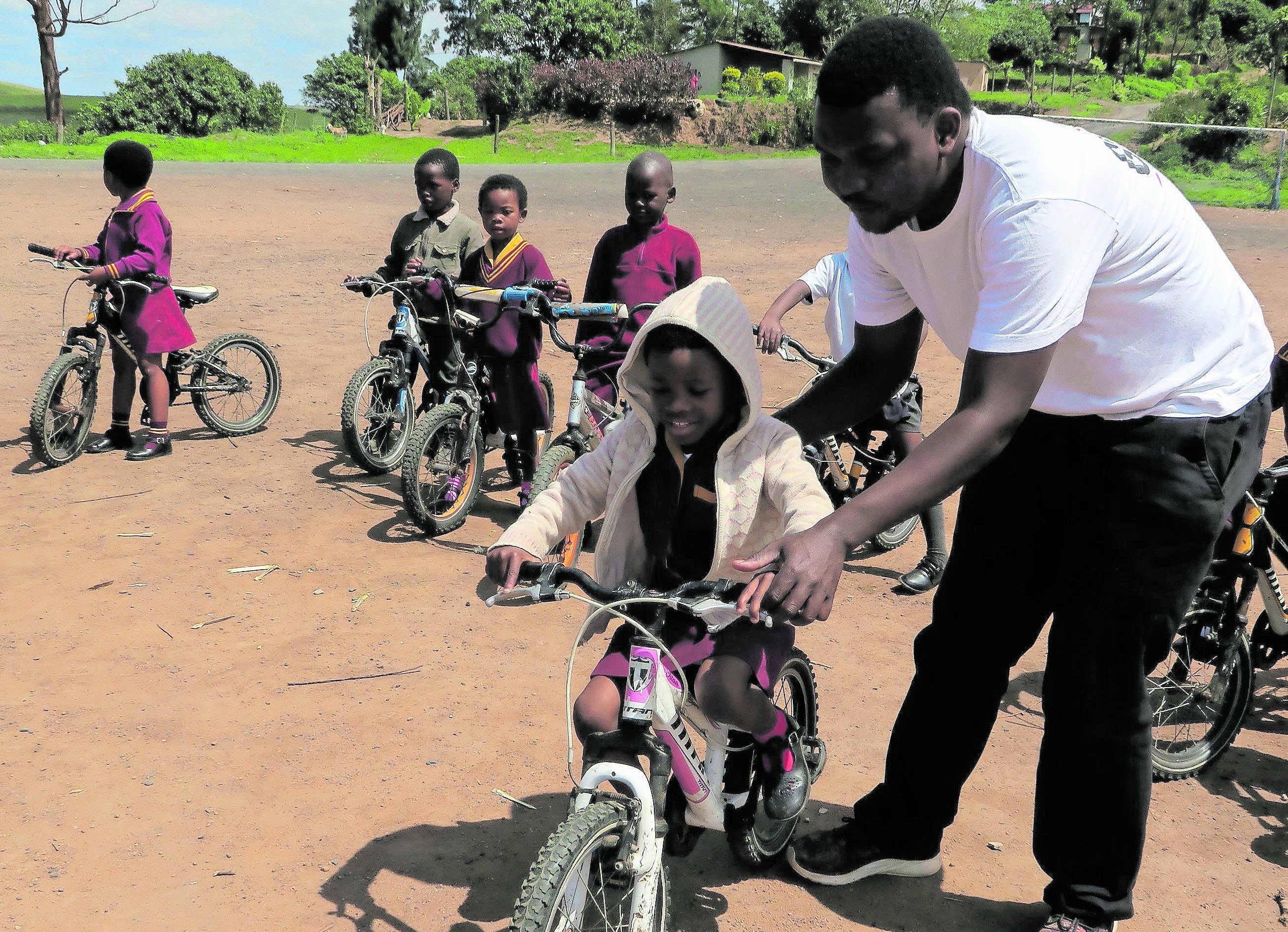
Mshwati Memorial School
In the poverty-stricken rural community of Emthombisa in KwaZulu-Natal lies a small, no-fee school called Mshwati Memorial School. Before the school’s principal Bizie Mgwaza partnered with Gillian Cox of Numatic as part of the Partners for Possibility programme, the school was severely under-resourced and its infrastructure was in poor condition. This situation was further impacted by the difficult circumstances faced by most of its students. Out of the 276 learners who attend the school, 90% are raised by unemployed parents or guardians and most rely on the government feeding scheme for their daily meal.
Mgwaza and Cox worked together to bring about impressive change to the school’s infrastructure, resources and student population. Within nine months, the team had alleviated some of Mshwati’s most pressing challenges. It took significant thought, effort and collaboration with stakeholders, but the results speak for themselves.
Today the school has a wealth of new resources available to the grade R learners that include colourful learning charts and mats for the children to sit on while they read or play. Last year the grade R and grade 01 students were given the opportunity to receive free weekly cycling lessons from Glide and Ride, with breakfast included. Only students who attended school all week were allowed to participate in these sessions. The result was that absenteeism was reduced from 26% in the grade R class at the start of 2018 to 2% by November 2018. The Robin Hood Foundation donated new shelving for the library, while Biblionef SA and the department of education provided 200 isiZulu books and R85 000 worth of books respectively.
These changes were enhanced by monthly workshops for the maths teachers that provide them with the support and training they needed, which saw a significant improvement in their learners’ performances. The kitchen was upgraded with R10 000 worth of equipment and a R6 000 donation for seedlings from Sunshine Seedlings saw the school build its own garden. Planning, digging and planting by parents and community members means there is a bountiful garden to feed the children throughout the year.
Magwaza’s growing confidence in the school and its potential has also contributed to a sustainable change and inspired greater unity in the school management team, the staff and the school governing body.
“I have learned so much from this programme and enjoyed all the workshops. I learned that to become a good leader you must be a good listener. I have earned respect from my teachers, learners, parents and the community,” she says.
For Cox, the experience was equally rewarding: “I’ve learnt and grown more than I could have imagined. I am in awe of the work that has gone into designing the full PfP programme. I have a highly motivated principal who embraces each and every change enthusiastically.”
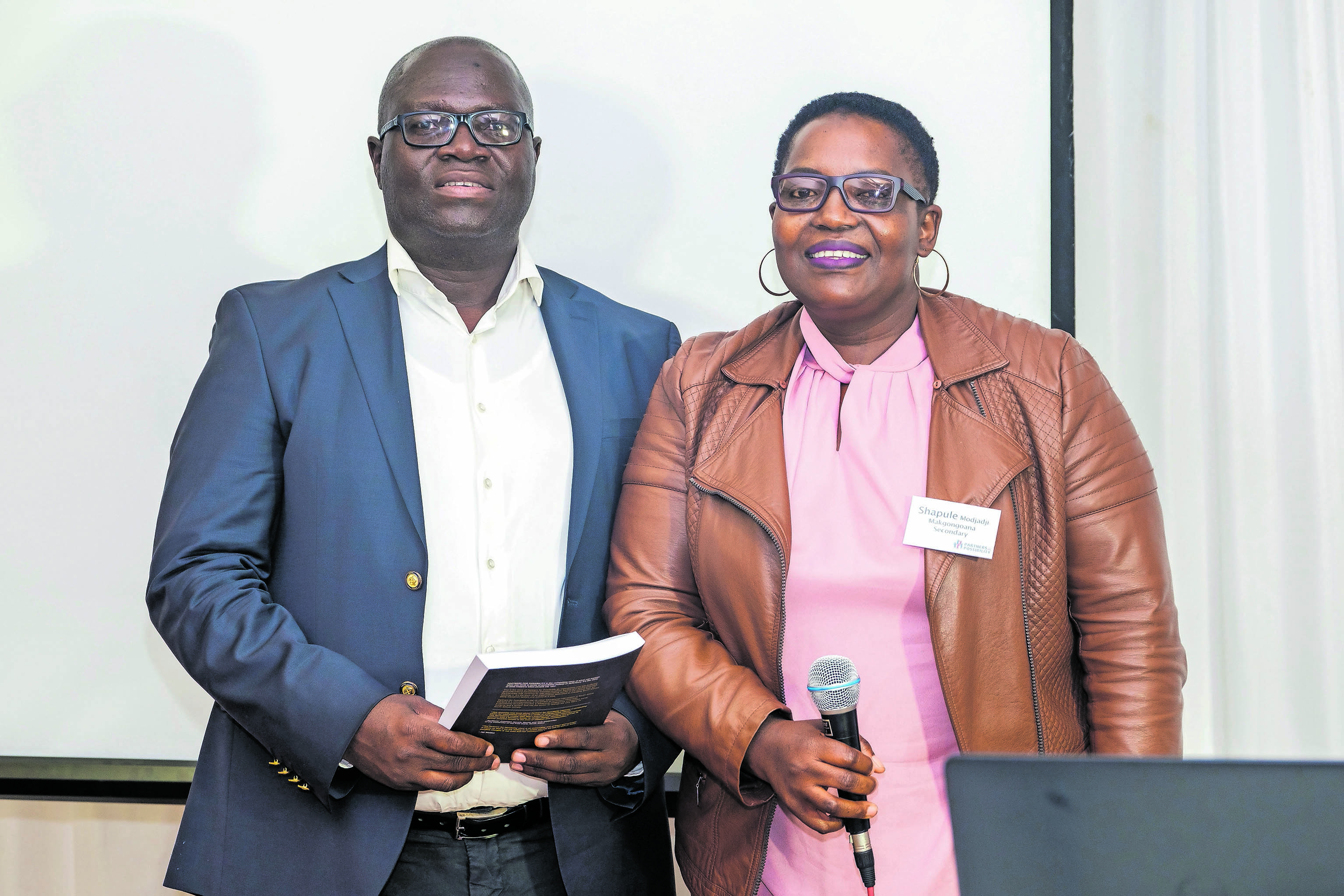
Makgongoana High, Limpopo
Makgongoana Secondary School in Makanye Village, about 30km outside of Polokwane, serves a diverse community of learners from the surrounding villages. The school provides educational facilities for 890 learners from grade 8 to grade 12 but over the past few years, enrolment has seen the classrooms become overcrowded to the point where educational quality was affected. Teachers have found it difficult to implement certain instructional practices and learners were distracted and lacked focus; academic performance dropped dramatically. The matric pass rate fell from 61.7% in 2015 to 39.1% in 2017.
The principal, Shapule Modjadji and the teachers struggled with a lack of learner discipline, high pregnancy rates, substance abuse, vandalism, lack of motivation, limited parental involvement, low staff morale and poor school infrastructure. In spite of her many years of experience in education, Modjadji felt ill-equipped to lead an institution that was faced with so many challenges. To find a way out of the situation, she partnered with Mapinini Masegela, senior superintendent at the Polokwane Municipality, through the PfP programme. Masegela had already been working as a chairperson at the school governing body for another education institution, so he was aware of how the school system worked and the challenges that lay ahead.
The partnership between the two was sponsored by MySchool MyVillage MyPlanet and Mahlako A Phahla investments. The team did extensive training that taught them a great deal about how to shift the dynamic of a school through strong leadership. The workshop training was provided by Flawless Consulting and provided them with contracting skills that allowed them to communicate and deal with resistance more effectively.
“The workshop taught me how to establish and maintain relationships with my school governing body, school management team, teachers and learners,” says Shapule. “I am able to say ‘no’, and this has improved my relationships and gained me respect.”
Shapule also attended a Community Building Workshop along with some members of her school management team and the school governing body. They then shared these learnings with other members through mini workshops. The result is that the leadership of the school has become increasingly cohesive and efficient, using the principles outlined in the workshops to effect positive change.
Over the past year, the team established a team-building workshop for the teachers, an induction session for the school governing body to clarify their roles and responsibilities, a vegetable garden that requires active engagement from community members, and planted trees with community members. The school also entered the Green School Project and won fifth place and a prize of R3 000.
To build on the limited infrastructure, Shapule and Masegela secured new desks from the department of basic education. They also hosted a spring camp to help improve learner performance and boosted this with a motivational talk for the grade 12 learners just before their final exams.
To quote a great cliché, the results speak for themselves. The matric pass rate rose from 39% in 2017 to 69.7% in 2018 and the school received a certificate for being one of the top three most improved public schools.
“The encouragement that I received while on the PfP programme made me realise that I can do it,” concludes Shapule.
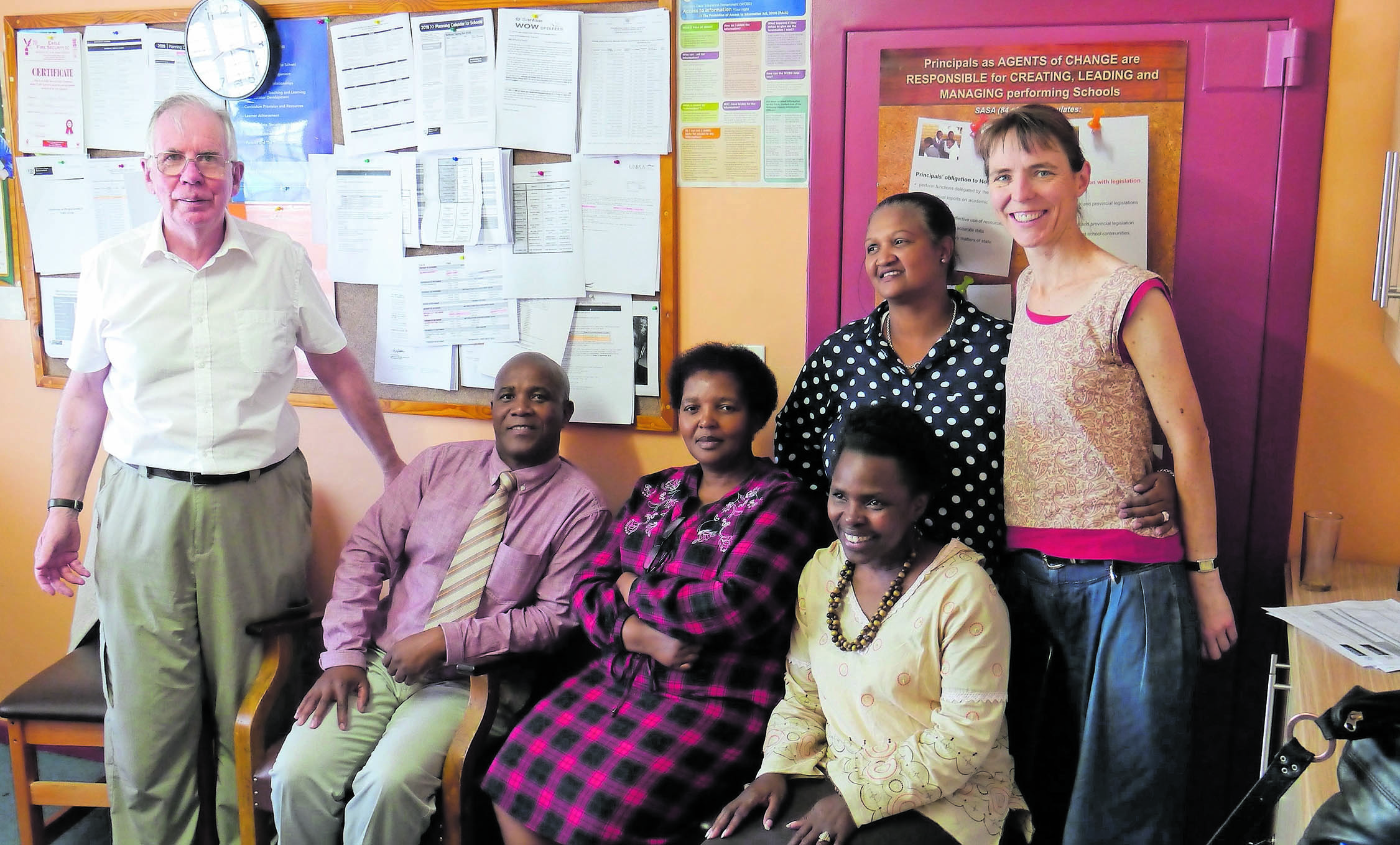
Sigcawu Primary, Western Cape
Sigcawu Public Primary is a large no-fee school in the township of Crossroads in the Western Cape. The school caters for 1 326 grade R to grade 07 learners from Crossroads and nearby Philippi and has a total of 32 teachers. More than 40% of the youth live in homes without an employed adult, more than 25% live in a shack or backyard dwelling, and 11% have no power at home. The school faced numerous challenges, not least of which being to inspire and motivate these young learners while also overcoming some of the systemic issues impacting on the school itself.
Sigcawu has experienced significant growth over the past few years which has been fuelled, in part, by the increase in housing developments in the neighbourhood. The department had to create additional teaching posts and provide mobile classrooms to reduce the overcrowding.
Since he joined in 2003, the principal of the school, Victor Mlumbi, has been dealing with challenges such as overcrowding in the classrooms, vandalism, and poor communication with parents due to a lack of telephone systems and cabling. The learners were also struggling with deficient literacy skills and a lack of comprehension — often children entering grade 01 don’t have the basic level of school readiness they need to thrive. This is further complicated by the switch from isiXhosa in the Foundation phase to English from grade 04, as many of the students don’t speak English at home.
In 2015, Mlumbi joined PfP and partnered with Adrian Bush from IT company Even Flow Distribution. Their partnership was made possible thanks to Even Flow Distribution and the Mapula Trust. Working closely with Bush, Mlumbi learned how to plan for short- and long-term needs and goals, and together they established a variety of initiatives for the school.
They developed a communication infrastructure with a telephone system and Wimax, sponsored by Telkom, so the school was connected to the outside world. They also undertook strategic planning and teambuilding with the staff and developed a Facebook page with photos of the staff on display.
It was this investment into team spirit and empowering members of staff that had a critical impact on the school and its success. Teacher attendance improved from 85% to 90%, heads of department became more involved and took responsibility for the curriculum, and a new culture of discussing issues of concern allowed for more seamless problem solving. There has been an overall improvement in school results, especially in grade 06, where the pass rate in English shifted from 13.5% in 2015 to 40% in 2018, and from 16.7% in maths to 66% in 2018.
As a result of his personal and professional growth and the fundamental shifts in the school and its success, Mlumbi has since been asked to provide guidance and support to other schools in the area. His quiet determination, his commitment to the teachers and to the students, and his passion for ensuring that poverty is no barrier to education has seen Sigcawu Primary School change for the better.
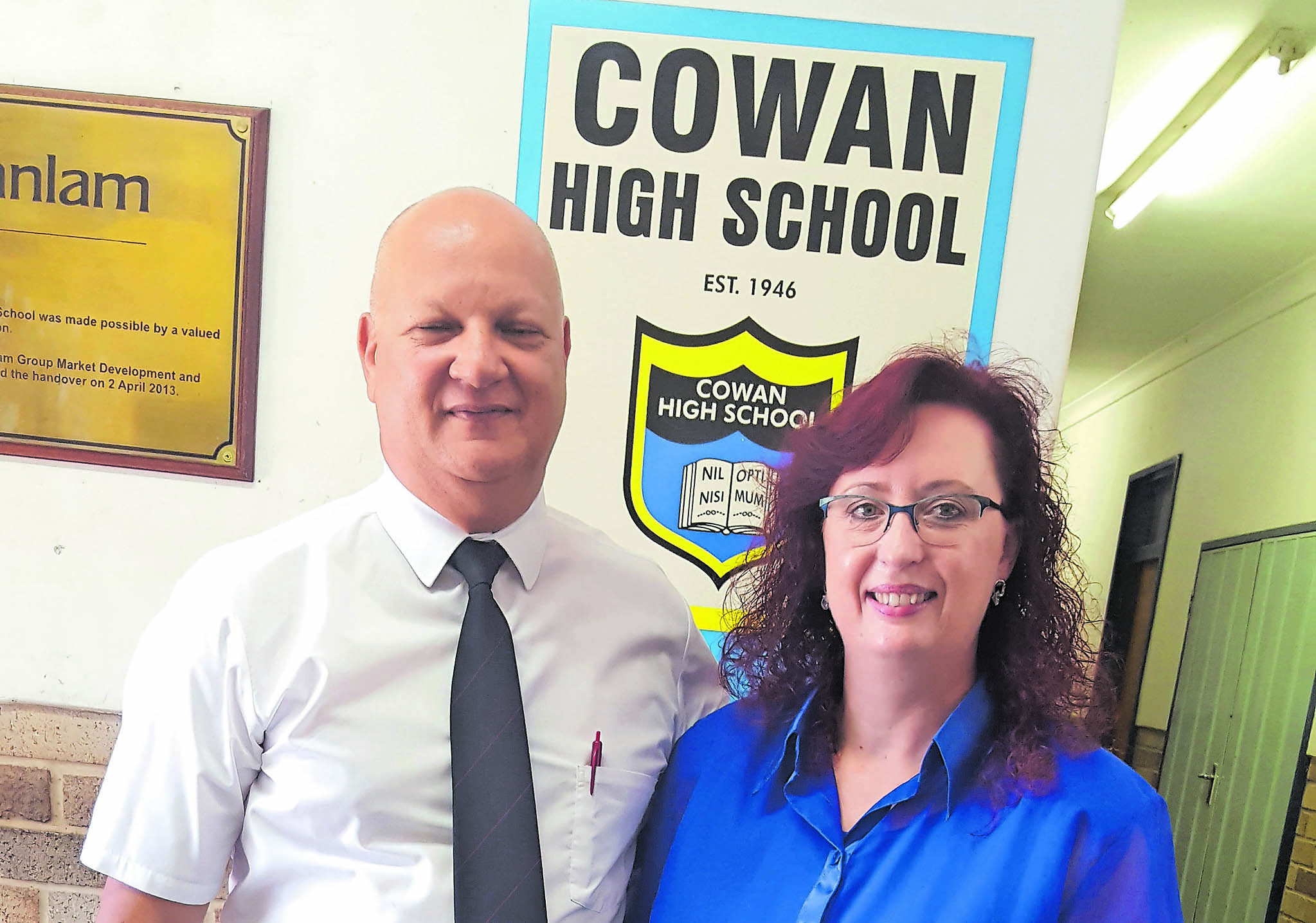
Cowan High School, Port Elizabeth
Cowan High School was established as a no-fee school in 1946 in the township of New Brighton in Port Elizabeth. The school battled with socioeconomic challenges in the community along with an ageing school infrastructure, both impacting on the morale of the 1 127 students. In 2017, the school joined the Sakha Ikamva programme sponsored by the Zenex Foundation to support high schools in the Eastern Cape; one of the components was the Partners for Possibility leadership development and principal support programme.
Cowan principal Trevor Dolley partnered with Anrie Spangenberg from FNB, which provided complementary funding for the school as part of the partnership. Together, they worked on a creative approach to tackling the challenges that faced the school, taking the ideal of the school’s rejuvenation and turning it into an action plan.
The results have been remarkable. Through a partnership with FNB and the Mandela Bay Development Agency, the school has been cleaned, painted and had grass planted, which gave it a facelift. It helped boost moral and went a long way to restoring staff and student dignity. They also provided alternatives to gangsterism, substance abuse and unemployment by working closely with a nearby church. They had regular speakers talking about rising above circumstances and a comprehensive after-school sports programme.
Over the past two years, there has been a steady improvement in matric results, with the pass rate rising from 57.4% in 2016 to 67.4% in 2018. It shows a consistent upward trend that reflects the steady work done at the school.
“The exposure to Partners for Possibility has opened so many doors and perspectives that led to intellectual growth,” concludes Dolley. “That said, the journey is not complete and never will be complete.”
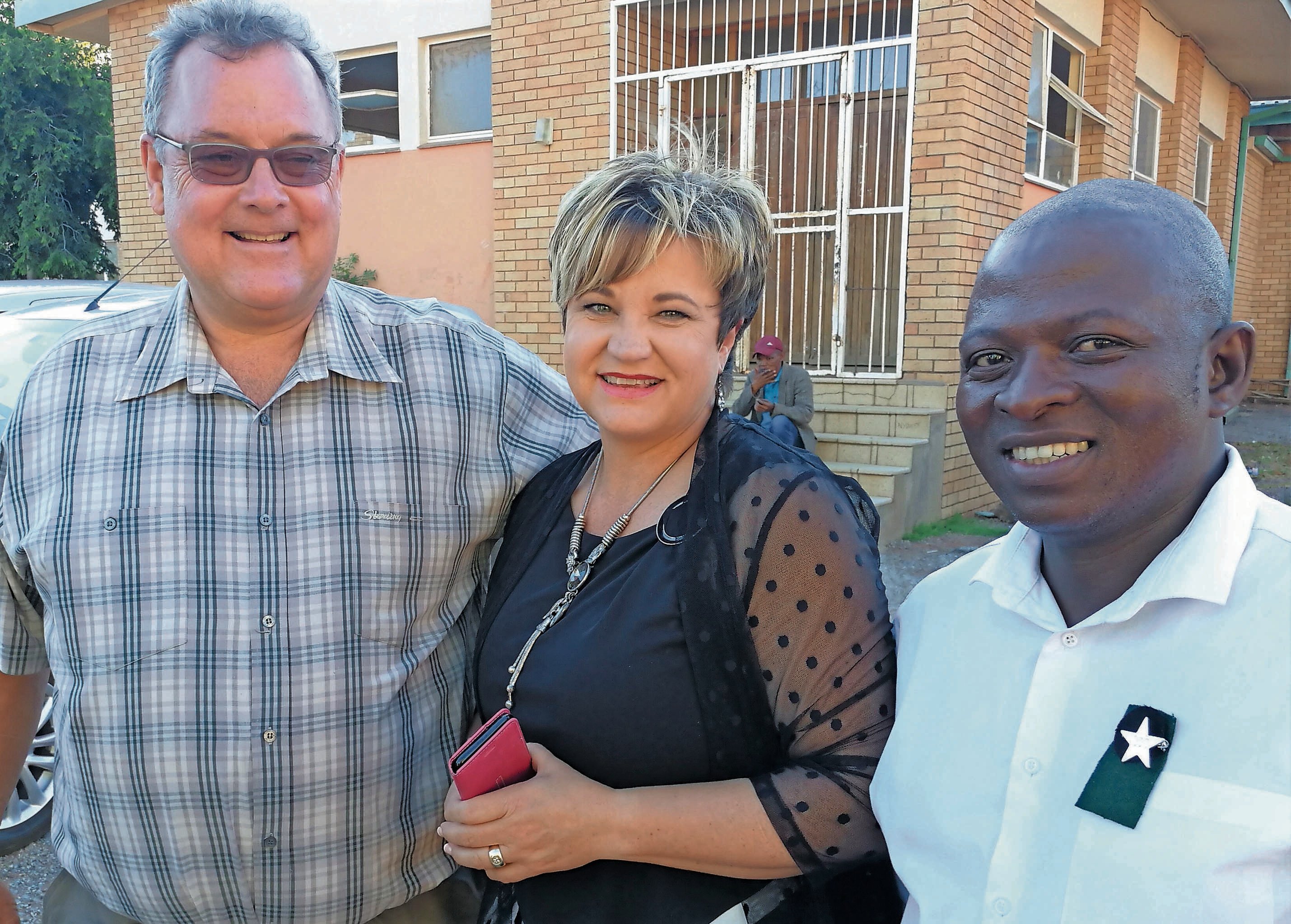
Langberg High School, Northern Cape
Langberg High School in Olifantshoek in the Northern Cape has had a long and difficult history. The school had political factions within the teacher, school governing body and parent fraternity that caused it to close down, preventing students from receiving an education for more than a year. In-fighting had paralysed the system. The doors re-opened, but the damage had been done.
Then Principal Monaheng Roestof entered the fray. He believed that it was critical that the school implement a clearly defined master plan and develop relationships between the three most important stakeholders — parents, educators and learners. He recognised that the teachers were not completely committed and that a lack of unity was affecting education, that the learners weren’t serious about their education, and that a lack of understanding was impacting on their studies. He believes that change is only real when it is visible.
Since he joined, that change has become visible. Roestof worked with his partner, Francois Malan of Langeberg Stene, in 2018 to help turn the school around. He developed a master plan as a way of overcoming the poor outcomes and negative image that characterised the school — the end goal is to see it become one of the top 10 performing schools in the Northern Cape. Launched at the end of 2018, the plan has already had an impact.The 2019 grade 12 learners bought into the masterplan with such fervour that they started the curriculum in 2018 and went back to school a week earlier in January of this year.
While the plan was still undergoing development, the principal’s commitment to change and the betterment of its pupils saw shifts in attitude and education. Langberg High School’s matric pass rate rose from 56.3% in 2017 to 70% in 2018, after just a year into this shift in attitude.
“We are impressed and excited by this masterplan and the turnaround strategy of Mr Roestof,” said Mrs Gobonamang Sibaya, Chief Director Curriculum, Department of Education. “This school will be independently run and not waiting for handouts any longer.”